Kindred spirits who’ve greatly influenced the course of my life
- Parijat Lama
- Etel Adnan
- Harry Allen
- Steven Salaita
- Hermione Harris
- Ani Ngawang Tsondu
- Harka Gurung
- Sukanya Waiba and Indira Dali
- Fawzia Afzal Khan
- Rosemari Mealy
- Hassen Abdellah
Parijat Lama
Poet, Novelist and Dissident
Nepal 1937- 1993

Long before I learned about her, Parijat was a widely published award-winning author– a poet, essayist and novelist. Among her honors is the Madan Puraskar, Nepal’s highest literary award. Her brave, forceful fiction matched her daring opposition to Nepal’s monarch-led feudal government. She led protests and organized youths against Nepal’s administration at a time when dissent was forbidden. Her home offered succor to ex-prisoners, to abandoned children and women, and to the impoverished.
Our association began in 1981, by chance so to speak, since the woman who brought us face-to-face had passed away forty years before, i.e. the early 20th C rebel Shakti Yogmaya. (I carried with me to Parijat’s door, a rare, printed collection of yogbani, her teachings in verse.) In subsequent meetings and with deepening friendship Parijat initiated me into the harsh political realities of Nepal, and the rationale for the Maoist movement for democracy which she advocated. She taught by example, leading a life of complete honesty and dedication to others. Even 28 years after her passing, Parijat’s mission, her friendships and her writings generate commentaries, articles and books.
Etel Adnan
Poet, Philosopher and Artist

I knew Etel Adnan initially through her books of poetry, a novel, and her many essays. This was when I was becoming aware of the powerful English language writings of women and men of Arab descent. Adnan’s bold word imagery spoke to me. Her creations emerge from her universal sense of justice, but also from the places and histories lived. (www.eteladnan.com) I respect her self-identifying as ‘Arab’ as compared to any particular nationality. Her profound, sensitive Arab-nationalist perspective is evident in her writing and in her positive view of our peoples. As president of RAWI during my tenure as its director, she guided me wisely and nourished our growing community of Arab writers. As she is no longer able to travel, she stays at her home in Paris where she now enjoys worldwide recognition for her paintings and sketches. Her art expresses the same clear philosophy as her poems, winning her a renowned place in contemporary art history.
Harry Allen
Hip-Hop Activist and Journalist

Born in Brooklyn and to this day, keeps New York central to his life and ambitions. Hip-hop activist and journalist. My broadcasting work at WBAI Radio in New York introduced me to men and women like Harry Allen who devote themselves to emerging art forms and to strengthening alternative culture.
Allen launched his weekly radio program “NonFiction” at WBAI in 1993, displaying skill as an interviewer and brought his distinctive, resonant voice to the urban public. His moniker “Media Assassin” tells it all. As for politics, he chooses to imbue it into the subjects and perspectives he highlights in his interviews and broadcasts.
In NYC, since the emergence of Hip-Hop poetry and his early association with the group “Public Enemy” in the 1980s, Allen has been in the forefront of recording Hip-Hop history with his documentation demonstrating its artistic depth and profound structure as well as its poetry and political message. He’s established himself as an authority on this uniquely urban American music genre.
Despite the very different subjects of our work, we continue our association through our dedication to the power of ‘voice’ and our commitment as activists. He steadfastly supports my work for Arab/Muslim peoples, reminding me of Toni Morrison’s adage:– “The serious function of racism is distraction”. I absolutely understand. https://en.wikipedia.org/wiki/Harry_Allen_(journalist)
Steven Salaita
Writer, Scholar and Activist

As an aspiring writer and a dedicated Arab-American, Steven was drawn to the Radius of Arab American Writers Inc during the time (1990s) I was its director. An early essay by Steven was awarded the RAWI prize in creative prose and drew him more deeply into the community of Arab writers in the US; he eventually became RAWI’s director. He and I were committed non-fiction writers while most members of our organization were fiction writers and poets.
Of Palestinian and Colombian parentage, Steven became a widely-read, respected cultural critic (stevesalaita.com), in part stemming from his advocacy for Palestinian and Native American rights, and a deepening knowledge of U.S. culture. One of a brave community of American scholars who openly criticize Zionist policies on Palestine, he was driven out of a promising academic career at U. Illinois by remarks made about Israel. His belief in his right to speak and the failure of the university to reverse its decision to fire him drove Steven to become an outspoken respected critic of the phony liberal academy.
Hermione Harris
Anthropologist and Activist
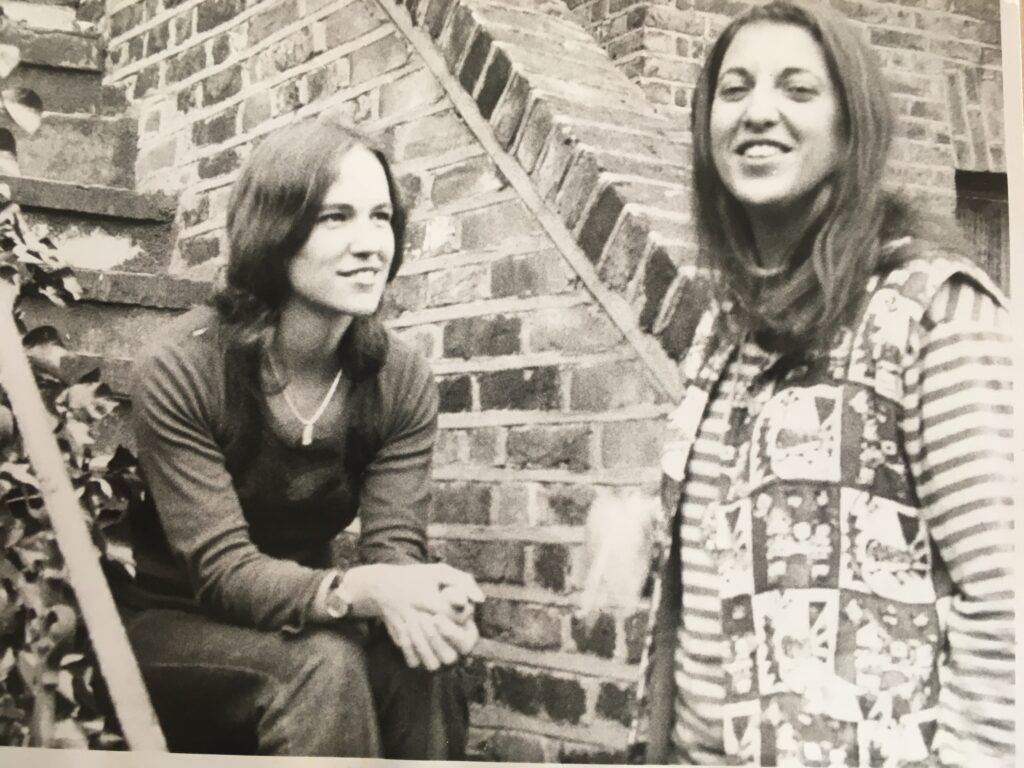
Born in London, Mione was a fellow graduate student in Social Anthropology during the 1970s at University of London. We were drawn to one another in our devotion to our our studies but also by that undefinable chemical embedded in any deep friendship. Our temperaments, our family backgrounds and our politics were widely different. Our shared intellectual pursuits, and a deepening appreciation of the vicissitudes of human civilization overcame those.
As we moved ahead through graduate school, I doggedly pursued conventional field research abroad, Mione lingered on the historical roots of anthropology, taking a critical view of our discipline as ‘the child of imperialism’. Hers was a more mature approach, I later realized.
Mione was also quick to grasp the significance of new feminist thinking when it emerged in the early 70s, whereas I remained a passive observer; it seeped into my work almost unnoticed to emerge only much later in research strategies and my writing.
My early priority was South Asia, while Mione focused on Nigeria and Nigerian communities in the UK, and later on the Nicaraguan political struggle.
Despite our intimacy as students and for some time afterwards, we drifted apart–until a year ago when she contacted me out of the blue. I was delighted and touched, proud to inform her of my eventual political conversion; I could now report on 30 years of strident political activism on behalf of my Arab people, and I happily shared my critical essays on U.S. policies. On her side, she announced completion of her doctorate and other publications and films. Her accomplishments as a researcher remain as important to her as mine are to me.
Mione still lives in London but is unable to travel due to an affliction by Parkinson’s. Just when we began to talk about my going to England for a reunion, the Covid pandemic struck. In our now regular lengthy phone talks, we are as close as we were as students in London. That’s something!
Ani Ngawang Tsondu
Buddhist Nun, c. 1900- 1984

Born circa 1900 in Chang, Tibet, arrived by foot across Himalayan glaciers into north-east Nepal –a refugee and a mendicant nun– with thousands of other Tibetans fleeing to Nepal and India after China occupied their land. Aged seventy-four when we met in 1969, Ngawang Tsondu somehow managed to continue her religious pursuits and sustain herself, living in the Sherpa-Tibetan village in Solu where I’d settled to write a history of Dingri, Tibet –see my timeline– from where many of her fellow refugees had originated.
I was both comforted and enriched by this woman’s friendship as a student and a newcomer, beginning a year of solitary field research in this isolated mountain village. (Any lone arrival– an inquisitive foreigner too– is suspect in a village where other residents belong to the same culture and are absorbed in manual work and family life.)
Ani Tsondu reached out to me early in my stay, inviting me to join her and other mendicants for their 10 th-moon-day prayer gathering (tse-chu shog-pa). She alone sensed I was spiritually inclined and also in need of companionship as well as guidance. (She also appreciated that I was more like a nun or monk in my solitude and my engagement with books.)
In 1970, halfway through my stay in the village, Ani Tsondu took up permanent residence in a recently built Tibetan monastery/nunnery (Thupten Choeling) a day’s walk away, so I often went there to visit her and thereby became close to the abbot and his staff (all monks!). Since I was by then fluent in her language, we shared many details of our lives, and my firsthand look at Tibetan monastic life led to several articles. Other residents there were touched by Tsondu and my friendship and spoke about us long after her passing in 1984.
My 1989 essay on Ngawang Tsondu for Natural History, (Vol. 3, 1989) Magazine of the American Museum of Natural History was one several articles I wrote about nuns, and the first to introduce Tibetan nuns to a wider public and into the literature on Tibet. (Until then this community was completely ignored by Buddhist scholars and Tibetologists).
Harka Gurung
Geographer, Anthropologist, Author, Artist and Conservationist
Nepal, 1939-2006
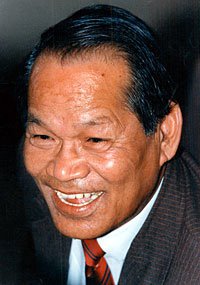
Born in Lamjung village, Nepal, Gurung died tragically in an air crash in Nepal that took the lives of twelve others, and left the country bereft). Trained as a geographer, with one of Nepal’s earliest PhDs in the field, Gurung’s dynamic and promising career began early with his participation in a club of young Nepali writers and poets. He liked to paint, and he read widely. So when he became a professional geographer, his perspective extended to anthropology, folklore, literature and politics so he was a huge asset to any conference he joined.
His pride in his Gurung origins from Nepal’s mountainous region combined with his patriotism as a Nepali motivated him to travel widely across his country at a time when few citizens did so, and furthermore to document his experiences in photography, in geographical expertise and in his many books. Together with Salter, he wrote “Faces of Nepal ” a classic, still in print. He also commented candidly and profusely on anything written about his country.
Gurung was able to effect some significant administrative changes during his early service in the government. But he was not a monarchist and he welcomed the movement for democracy in the 1990s.
He won friends and admirers in many fields and influenced numerous students, of which I was one. In 1969 in London just as I was setting out for doctoral fieldwork in his country, he offered this advice: “You foreigners carry all kinds of personal gadgets with you to Nepal– I would suggest you also load up with medical supplies– these will be useful to help you treat needly people you will come across during your research work.”
A decade later, in 1980 following my arrival back in Kathmandu Valley from a distant village with stories of a hidden history learned from a community of ascetic women, he said emphatically: “You must return there and learn as much as you can from those women”, spurring on my research on Yogmaya and Durga Devi, and eventually the book Heir to A Silent Song. Gurung respected good empirical field research knowing it was critical to his national history at a time of rapid change.
Sukanya Waiba and Indira Dali
Educators and Political Activists


Both these remarkable Nepali women are lifelong friends whose careers as educators and political activists are deeply intertwined. Both my age, they are also not yet retired, and continue to devote themselves to literary endeavors that have marked their lives and which contribute so much to Nepali families and their children.
Sukanya is a teacher of English, and founder and director with her sister Parijat, of Amrit Secondary School in MehPin, Kathmandu. Indira Dali is a retired professional librarian at Tribhuvan University who has for years been engaged in enabling reading among children. She is engaged with many organizations in Nepal and in Japan to expand the use of libraries in a nation that gives reading a low priority.
I met both women through Nepal’s literary icon Parijat in 1981 or 82. After Parijat passed away, together we founded the “Parijat prize for children’s book manuscripts” in Nepali language. Indira Dali managed this prize over several successful years when winners and others who submitted entries had their manuscripts snapped up by commercial publishers. Indira and Sukanya remain active politically in Nepal; you’re likely to find them at literary events in the capital.
Fawzia Afzal Khan
Writer, Critic, Singer and Professor
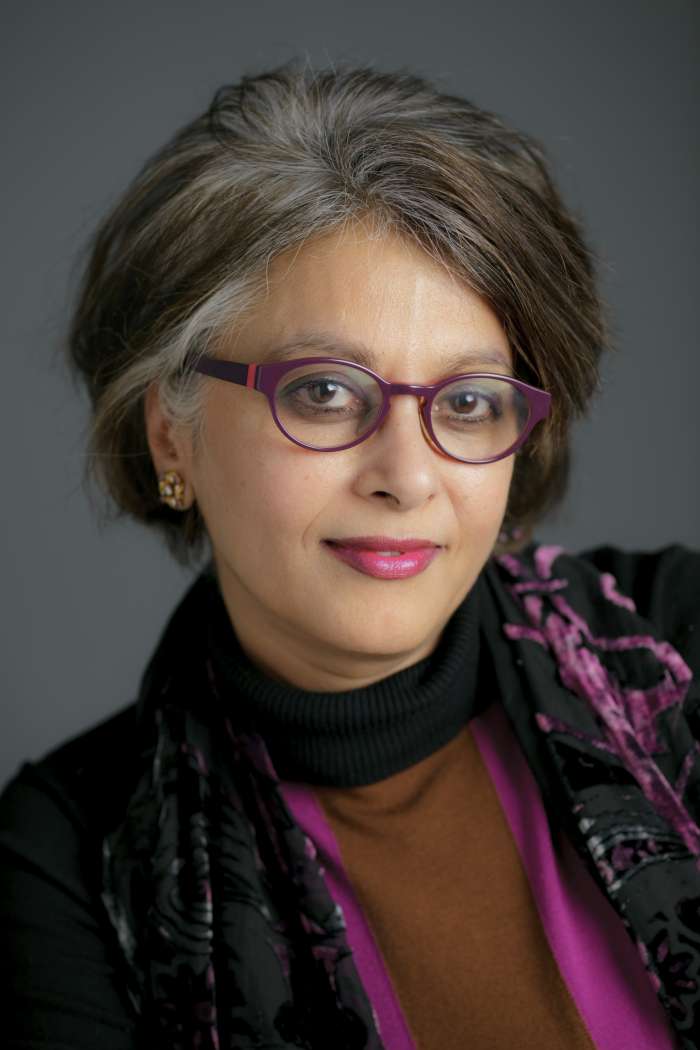
Writer, critic, singer and professor of English literature based in New York. Although currently active with South Asian writers, she joined with Arab American writers through RAWI in the 1990s which is how I, as RAWI’s director, met her. I proudly contributed to her early collection “Shattering Stereotypes”.
Afzal-Khan promotes the work of Arab and Muslim American writers through public programs and in her university courses. Through her love of performance art, she is active in stage productions and is always happy to host a literary or artistic gathering. Her latest book is “Siren Song: Understanding Pakistan through its Women Singers” celebrates Muslim women in poetry. Like me, Afzal-Khan is committed to highlighting the proud traditions and accomplishments of Asian women.
Rosemari Mealy
Lawyer, Professor and Activist
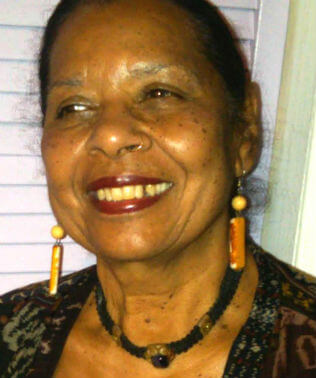
Rosemary is a committed political activist whose work to inform the American public of discriminatory, and universally denounced U.S. policies towards Cuba and to build ties between Cuba and the U.S. is undiminished over the decades of her career in this field. Mealy is another radio broadcaster whose work I was introduced to in our WBAI Radio studios. She guided me in the art of radio, and also in the courage to defend people and principles I believed in despite prevailing opposing views in the media and in universities.
From Meally I learned the difference between a narrowly defined, deceptively welcoming ‘white liberalism’, and real activist commitment. As a former Black Panther member with her husband Sam Anderson, she’s seen the police state machine up close, but is steadfast in commitment to social justice.
A professor of labor history, Rosemari studied law (earning a DJ) in order to better comprehend how people might defend themselves against injustice. Both demonstrate wisdom without being cynical– not easy. Her book “Fidel and Malcolm: Memories of a Meeting”” is an important documentation of these leaders’ 1960 historic conversations in Harlem, New York.
Hassen Abdellah
Lawyer and Community Leader
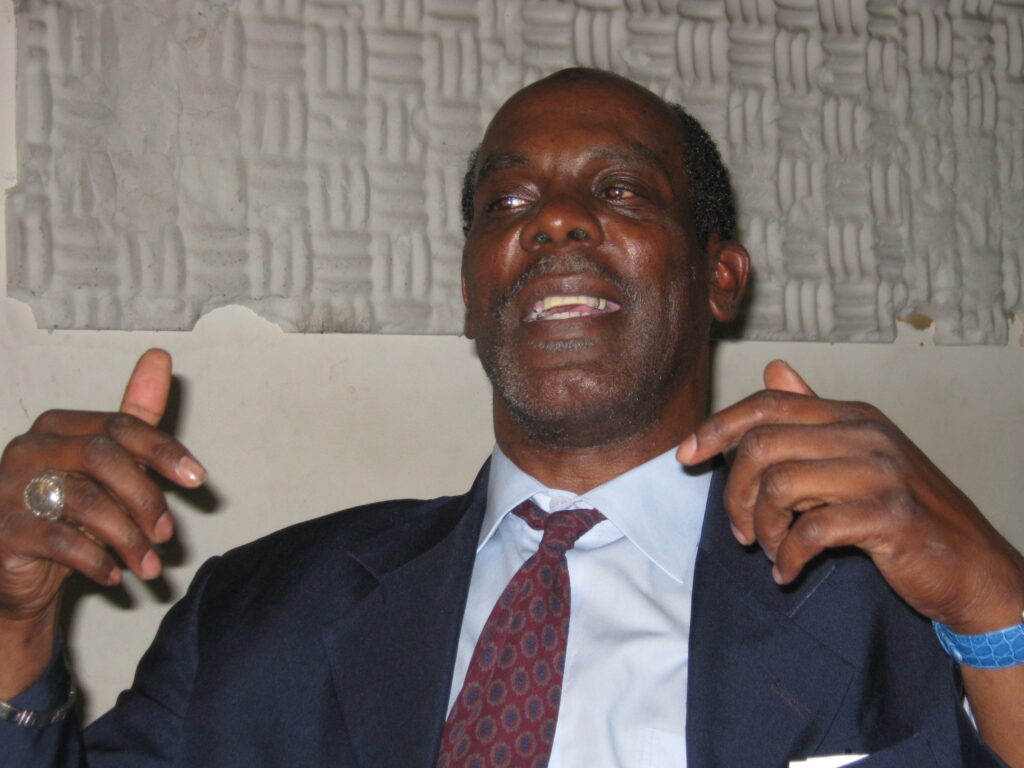
Born in New Jersey where he also has his law office. Our long friendship was unlikely since I’m what’s called a secular Muslim while Hassen is a devoted follower of the teachings of Islam, introduced from childhood by his father, an Arab originally from Yemen. This he combined with his strong African American political awareness from his mother. He combines his deep knowledge of both histories bringing that to everything he does.
I witnessed the devotion with which he cared for his mother at home up to her passing at the age of 106, then following her Christian tradition for her last rites.
Hassen, I learned only recently, had aspirations from his youth as a sports broadcaster. He ended up as a lawyer, but that early dream must have drawn him to my program at WBAI. That show was dedicated to Arab and Muslim issues and he enthusiastically joined our mission.
Perhaps because of his training as an attorney combined with confidence in his political beliefs, he proved exceptionally skilled in the talk-show format where he opened the phones to spar with sometimes hostile listeners. We often talk politics together but he remains the one person with whom I can rarely sustain an ideological argument
